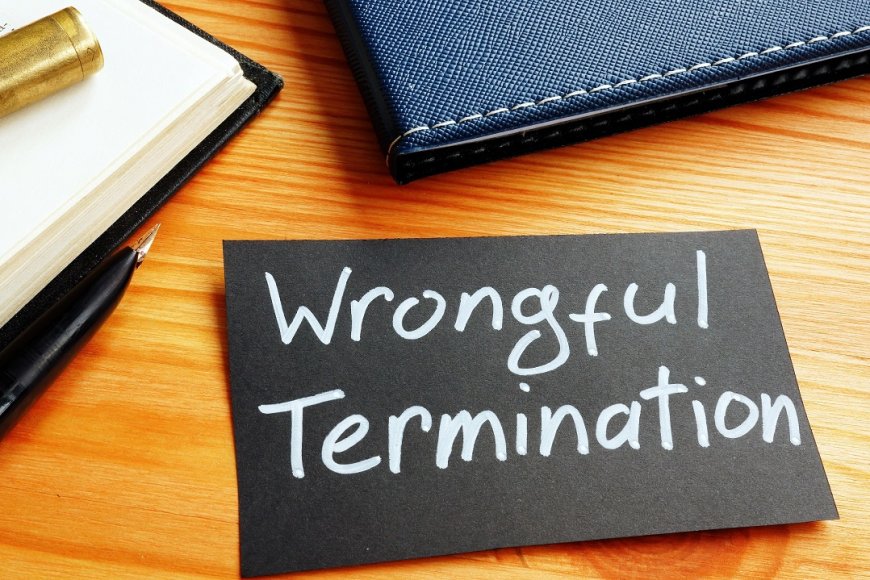In the realm of employment law, wrongful termination disputes are often complex and emotionally charged. Employees who believe they have been wrongfully terminated seek justice and resolution, while employers aim to protect their interests and minimize potential liabilities. In Los Angeles, a city renowned for its diverse and dynamic workforce, the demand for effective dispute resolution mechanisms is particularly high. Mediation and arbitration have emerged as crucial tools in resolving wrongful termination disputes, offering a less adversarial and often more efficient alternative to traditional litigation.
Understanding Wrongful Termination
Before delving into the roles of mediation and arbitration, it is essential to understand what constitutes wrongful termination. Wrongful termination occurs when an employee is fired in violation of federal or state laws, employment agreements, or public policies. Common grounds for wrongful termination claims include discrimination, retaliation, breach of contract, and violation of labor laws.
The Impact of Wrongful Termination
Wrongful termination can have significant repercussions for employees, including financial loss, emotional distress, and damage to professional reputation. Employers, on the other hand, may face legal penalties, financial compensation claims, and reputational harm. Given these stakes, finding a fair and efficient resolution is paramount for both parties involved.
Mediation in Wrongful Termination Disputes
What is Mediation?
Mediation is a voluntary and confidential process where a neutral third party, known as a mediator, facilitates communication between the disputing parties to help them reach a mutually acceptable resolution. Unlike a judge or arbitrator, the mediator does not impose a decision but instead assists the parties in negotiating a settlement.
Benefits of Mediation
- Confidentiality: Mediation proceedings are private, ensuring that sensitive information and discussions remain confidential.
- Control: Both parties retain control over the outcome, as any agreement reached is based on mutual consent.
- Cost-Effective: Mediation is generally less expensive than litigation, reducing legal fees and other related costs.
- Timely Resolution: Mediation can be scheduled quickly, often leading to a faster resolution compared to the court process.
- Preservation of Relationships: The collaborative nature of mediation can help preserve professional relationships, which is particularly valuable in cases where the parties may need to interact in the future.
The Mediation Process
- Initiation: Either party can request mediation, or it may be recommended by legal counsel or a judge.
- Selection of Mediator: Both parties agree on a mediator with expertise in employment law.
- Mediation Sessions: The mediator facilitates discussions, helping the parties identify issues, explore options, and negotiate a settlement.
- Agreement: If a resolution is reached, it is formalized in a written agreement, which can be enforceable in court.
Arbitration in Wrongful Termination Disputes
What is Arbitration?
Arbitration is a formal dispute resolution process where a neutral third party, known as an arbitrator, hears evidence and arguments from both sides and then makes a binding decision. Unlike mediation, arbitration is similar to a court proceeding but typically less formal and more streamlined.
Benefits of Arbitration
- Binding Decision: The arbitrator’s decision is final and legally binding, providing certainty and closure for both parties.
- Expertise: Arbitrators are often experts in employment law, ensuring that the decision is informed by relevant legal principles and industry practices.
- Efficiency: Arbitration can be faster than litigation, with more flexible scheduling and streamlined procedures.
- Reduced Costs: While more formal than mediation, arbitration is generally less costly than court litigation.
The Arbitration Process
- Agreement to Arbitrate: Parties must agree to arbitrate, either through a pre-existing arbitration clause in an employment contract or a mutual agreement after a dispute arises.
- Selection of Arbitrator: Both parties select an arbitrator, often with assistance from arbitration organizations.
- Hearing: The arbitrator conducts a hearing where both parties present evidence, call witnesses, and make legal arguments.
- Decision: The arbitrator issues a written decision, known as an award, which is binding and enforceable in court.
Choosing Between Mediation and Arbitration
When facing a wrongful termination dispute, parties must decide whether to pursue mediation, arbitration, or traditional litigation. Factors to consider include:
- Nature of the Dispute: Mediation is suitable for disputes where preserving the employment relationship or achieving a collaborative resolution is important. Arbitration is preferred for disputes requiring a binding decision.
- Costs and Time: Mediation is generally quicker and less expensive, making it ideal for parties seeking a prompt and cost-effective resolution. Arbitration, while more formal, still offers cost and time savings compared to litigation.
- Control and Finality: Mediation allows parties to control the outcome, while arbitration provides a definitive, binding decision.
Conclusion
In Los Angeles, the role of mediation and arbitration in resolving wrongful termination disputes cannot be overstated. These alternative dispute resolution methods offer significant advantages, including confidentiality, cost savings, and timely resolutions, making them attractive options for both employees and employers. By understanding the nuances of mediation and arbitration, parties can make informed decisions that best suit their needs and circumstances. When navigating the complexities of wrongful termination disputes, consulting with a skilled wrongful termination lawyer in Los Angeles can provide invaluable guidance and support in selecting the most appropriate resolution method.
Employees facing retaliation for taking medical leave can seek justice with the help of a skilled Los Angeles medical leave retaliation lawyer. These legal professionals specialize in protecting the rights of individuals who experience adverse actions from employers after utilizing their rightful medical leave. They offer expertise in navigating complex employment laws to ensure fair treatment and compensation. Consulting with a knowledgeable attorney is crucial for anyone subjected to such retaliation in the workplace.




